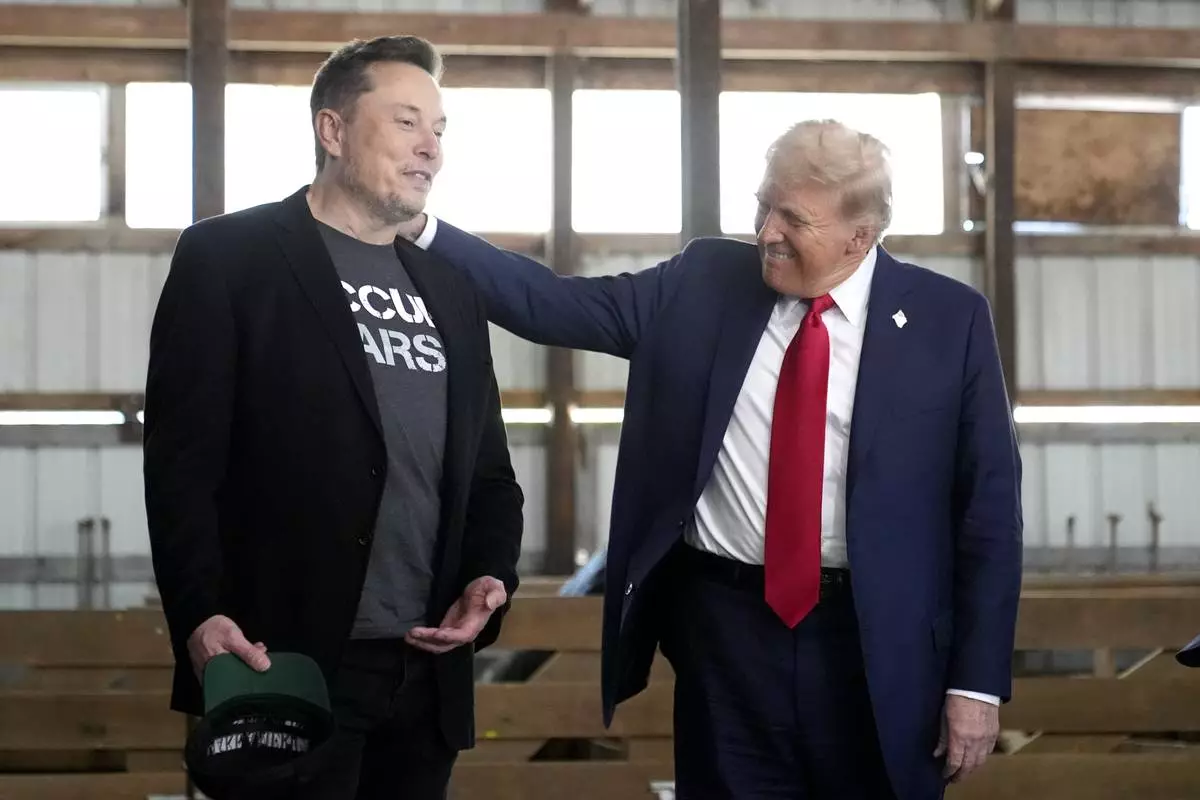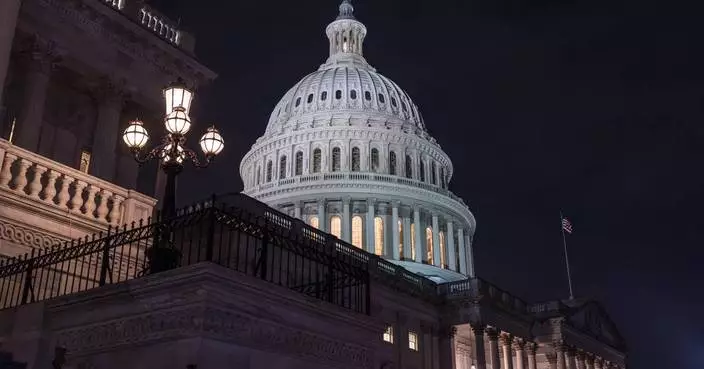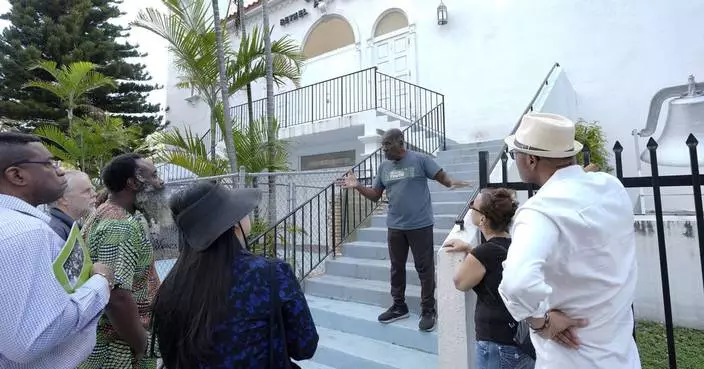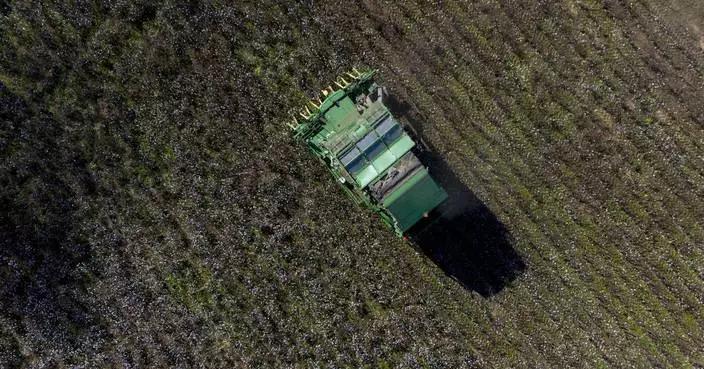MANILA, Philippines (AP) — Disasters, including those wrought by fiercer storms, are threatening more people and could derail economic progress in the Asia Pacific region if governments don't invest more in disaster mitigation and prevention, a U.N. official said Tuesday.
U.N. Assistant Secretary-General Kamal Kishore, who heads the U.N. Office for Disaster Risk Reduction, issued the warning in a speech at the start of a regional conference on disaster mitigation hosted by the Philippines, one of the world’s most disaster-prone countries.
"Disasters are now affecting record numbers of people and threatening their lives and livelihoods,” Kishore told hundreds of delegates to the three-day conference in Manila led by ministers in charge of disaster mitigation and response across the Asia Pacific.
"Left unchecked, these disaster risks threaten to derail the development aspirations of the Asia Pacific region and push back progress that has taken decades to achieve,” he said.
Kishore said Asia Pacific countries should regularly dedicate funds in their national budgets for the reduction of disaster risk, and should allocate a larger proportion of foreign development aid to disaster prevention and “not simply response.”
Such investments have brought down death tolls, he said. "They do die, but the mortality is coming down compared to before,” Kishore separately told reporters in an interview on the sidelines of the Manila conference.
Discussions focused on better disaster-warning systems, sharing of technology and building more resilient infrastructure, houses and workplaces.
The Philippines, which is co-hosting the Manila conference, has been in the crosshairs of disasters given its location as an archipelago sandwiched between the Pacific Ocean and the South China Sea, where about 20 typhoons and storms blow across each year. It’s also in the so-called Pacific “Ring of Fire,” where volcanic eruptions and earthquakes have long been a constant threat.
"These are compounded by the increasing frequencies of hazards brought about by climate change, which makes the Philippines at risk and our landscape even more,” President Ferdinand Marcos Jr. told the conference in a keynote speech.
With better access to financing, technology and data, the most vulnerable states could build better resilience, Marcos said.
European Union Commissioner for Crisis Management Janez Lenarćić attended the U.N. disaster-mitigation conference in Manila because he said closer international cooperation was the only way for nations from Asia to Europe to confront “a new reality” of “unprecedented frequency and intensity of weather-related disasters."
“None of us will be able to face these new challenges alone,” Lenarćić told The Associated Press in an interview. “These disasters know no boundaries.”
Since 2020, the EU has allocated more than 80 million euros ($87 million) to the Asia Pacific region to help finance disaster preparedness and mitigation efforts, Lenarćić said, and he urged wealthier countries to contribute more to such campaigns.
"This region has gained a lot of experience in facing disasters, in building resilience, and we would like to learn also the experiences from this region,” he said of the Philippines and other Asian countries. “It’s a two-way street.”
Associated Press journalists Joeal Calupitan and Aaron Favila in Manila contributed to this report.

European Union Commissioner for Crisis Management, Janez Lenarcic gestures during an interview with the Associated Press on Tuesday, Oct. 15, 2024, in Manila, Philippines. (AP Photo/Aaron Favila)

European Union Commissioner for Crisis Management, Janez Lenarcic gestures during an interview with the Associated Press on Tuesday, Oct. 15, 2024, in Manila, Philippines. (AP Photo/Aaron Favila)

U.N. Assistant Secretary-General Kamal Kishore, left, gestures beside Philippine Defense Secretary Gilberto Teodoro Jr. as he speaks at the Asia-Pacific Ministerial Conference on Disaster Risk Reduction, Monday, Oct. 14, 2024, in Manila, Philippines. (AP Photo/Aaron Favila)

U.N. Assistant Secretary-General Kamal Kishore gestures as he speaks at the Asia-Pacific Ministerial Conference on Disaster Risk Reduction, Monday, Oct. 14, 2024, in Manila, Philippines. (AP Photo/Aaron Favila)
President-elect Donald Trump's billionaire ally Elon Musk played a key role this week in killing a bipartisan funding proposal that would have prevented a government shutdown, railing against the plan in a torrent of more than 100 X posts that included multiple false claims.
The X owner, an unelected figure, not only used his outsize influence on the platform to help sway Congress, he did so without regard for the facts and gave a preview of the role he could play in government over the next four years.
“Trump has got himself a handful with Musk,” John Mark Hansen, a professor of political science at the University of Chicago, said in an email. “Trump’s done this kind of thing before, blowing up a bill at the last minute. This time, though, it looks like he was afraid of Musk upstaging him. Now there’s a new social media bully in town, pushing the champion social media bully around.”
Hansen added: “We’ll see what Musk’s influence is when he runs up against reality — like when he proposes cutting off ‘wasteful’ spending for other people but not NASA contracts for Space-X.”
Musk’s objections to the 1,547-page omnibus bill included misinformation about congressional salaries, federal funding and public health preparedness, among other topics.
He alleged that the plan included a 40% raise for lawmakers. But the maximum pay increase possible through the proposal would have been 3.8%, according to the Congressional Research Service.
One way that members of Congress can receive a pay raise is through automatic adjustments that go into effect unless denied by law. Most members make $174,000 per a year after their last increase of 2.8% in 2009. Congressional leadership is the exception, with the Speaker of the House earning the most at $223,500 annually.
The rejected bill struck a section from a previous appropriations act that denied members of Congress this automatic pay raise. A maximum increase of 3.8% would have bumped their annual salary by about $6,600, to approximately $180,000 annually.
Musk also shared a post from another user that falsely claimed the bill provided $3 billion in funding for a potential new stadium for the NFL's Washington Commanders, commenting: “This should not be funded by your tax dollars!”
The bill included a provision to transfer control of the land that houses RFK Stadium from the federal government to the District of Columbia. That transfer is necessary to pave the way for the Commanders to possibly build a new stadium in the franchise's old home — though the team is still considering other locations.
However, no such funding is provided by the bill. It states, in fact, that the federal government “shall not be responsible for payment or any costs or expenses” that the District of Columbia incurs after the transfer is complete aside from responsibilities related to specific environmental issues.
District of Columbia Mayor Muriel Bowser addressed false claims about the stadium's funding on Thursday, calling them “frustrating.”
“It was stated that the C.R. contains $3 billion for a stadium,” she said at a press conference. "All wrong. There are no federal dollars related to the transfer of RFK and in fact, the legislation does not require or link at all to a stadium.
Bowser added that she has reached out to the Trump administration to correct misinformation about this issue.
In a third post, Musk incorrectly claimed that “We're funding bioweapon labs in this bill!”
The plan provided funds for up to 12 regional biocontainment research laboratories, not facilities for creating bioweapons. It stipulates that among their uses, the labs will conduct biomedical research to prepare for biological agents such as emerging infectious diseases.
A spokesperson for Musk did not immediately respond to a request for comment from the Associated Press.
Some members of Congress expressed dismay that Musk had disseminated misinformation about the bill.
“I love you Elon but you need to take 5 seconds to check your sources before highlighting bottom feeders looking for clicks,” Rep. Dan Crenshaw, a Texas Republican, wrote on X.
In a hastily convened Thursday evening vote, the House rejected a new Trump-backed bill whittled down to 116 pages, with the bill failing 174-235. Dozens of Republicans joined Democrats in opposition.
The House finally approved a third spending deal Friday evening, and the Senate followed suit early Saturday. President Joe Biden planned to sign it into law later Saturday.
Trump led Republicans into the longest government shutdown in history in his first term during the 2018 Christmas season, and interrupted the holidays in 2020 by tanking a bipartisan COVID-relief bill and forcing a do-over.

FILE - Tesla and SpaceX CEO Elon Musk, left, and Republican presidential nominee former President Donald Trump attend a campaign event at the Butler Farm Show, Oct. 5, 2024, in Butler, Pa. (AP Photo/Alex Brandon, File)

FILE - President-elect Donald Trump listens to Elon Musk as he arrives to watch SpaceX's mega rocket Starship lift off for a test flight from Starbase in Boca Chica, Texas, Nov. 19, 2024. (Brandon Bell/Pool via AP, File)















